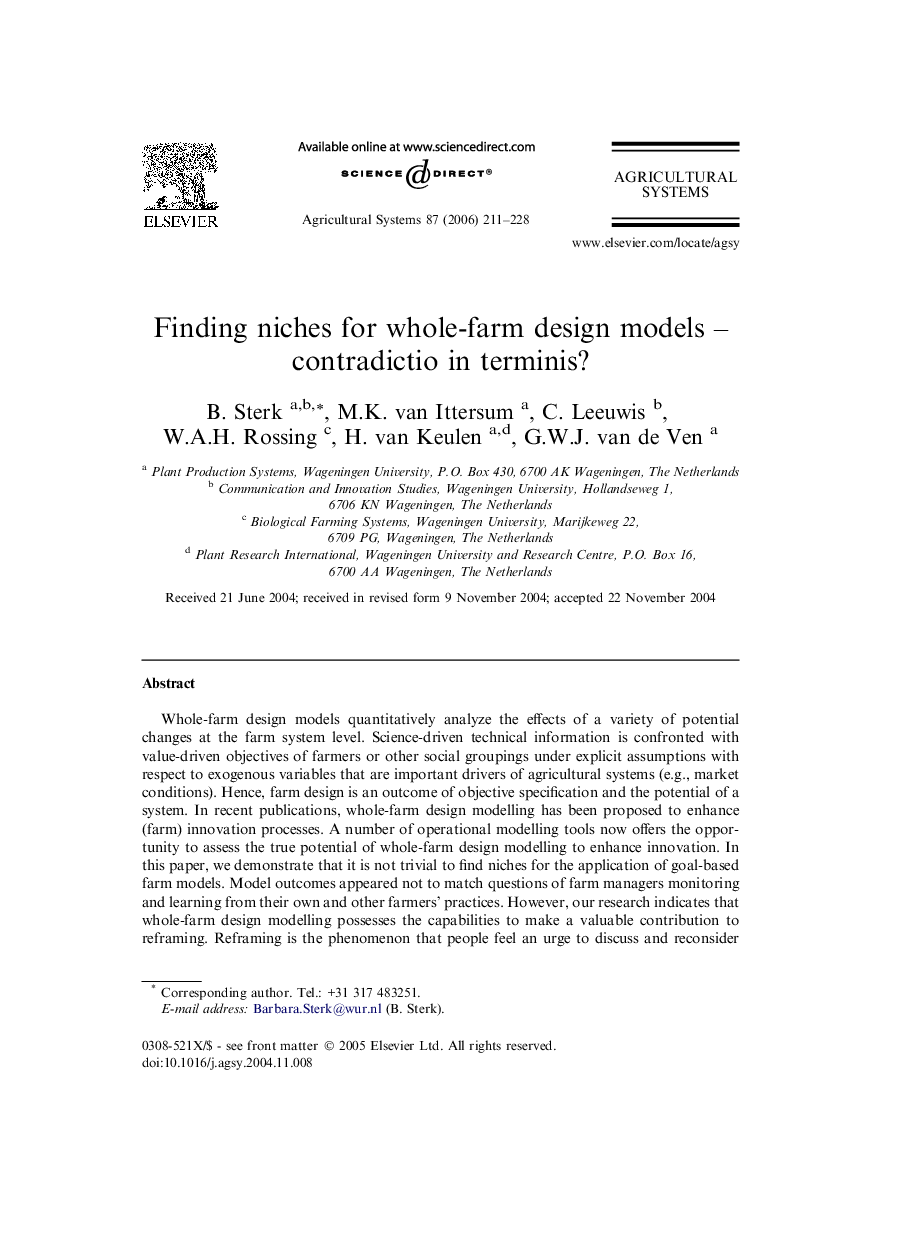| Article ID | Journal | Published Year | Pages | File Type |
|---|---|---|---|---|
| 4492029 | Agricultural Systems | 2006 | 18 Pages |
Whole-farm design models quantitatively analyze the effects of a variety of potential changes at the farm system level. Science-driven technical information is confronted with value-driven objectives of farmers or other social groupings under explicit assumptions with respect to exogenous variables that are important drivers of agricultural systems (e.g., market conditions). Hence, farm design is an outcome of objective specification and the potential of a system. In recent publications, whole-farm design modelling has been proposed to enhance (farm) innovation processes. A number of operational modelling tools now offers the opportunity to assess the true potential of whole-farm design modelling to enhance innovation. In this paper, we demonstrate that it is not trivial to find niches for the application of goal-based farm models. Model outcomes appeared not to match questions of farm managers monitoring and learning from their own and other farmers’ practices. However, our research indicates that whole-farm design modelling possesses the capabilities to make a valuable contribution to reframing. Reframing is the phenomenon that people feel an urge to discuss and reconsider current objectives and perspectives on a problem. Reframing might take place in a situation (i) of mutually felt dependency between stakeholders, (ii) in which there is sufficient pressure and urgency for stakeholders to explore new problem definitions and make progress. Furthermore, our research suggests that the way the researcher enters a likely niche to introduce a model and/or his or her position in this niche may have significant implications for the potential of models to enhance an innovation process. Therefore, we hypothesize that the chances of capitalizing on modelling expertise are likely to be higher when researchers with such expertise are a logical and more or less permanent component of ongoing trajectories than when these researchers come from outside to purposefully search for a niche.
